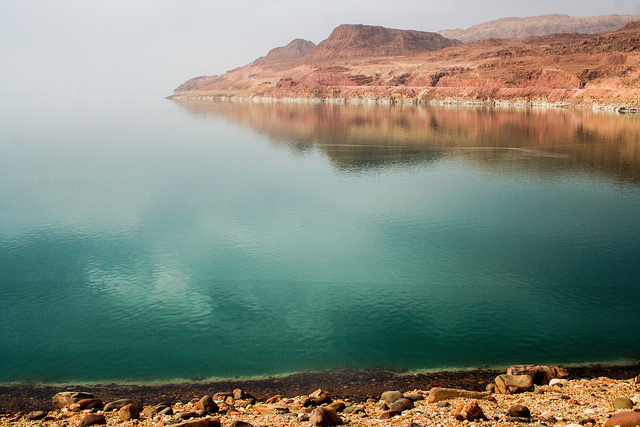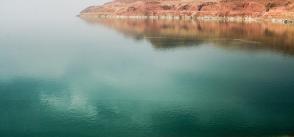
New life for the Dead Sea
Israelis, Palestinians and Jordanians join to counter a regional water crisis and save the Dead Sea
Once every two weeks, families in Jordan can turn on the taps and pipe up to four cubic metres of drinking water into their rooftop tanks. Unfortunately, this is only a third of the amount they need.
“People suffer a lot,” says Nabil Zoubi, who is married with three children. “We are relatively lucky because we live in Amman, where water is more available compared to other parts of the country.”
Jordan is one of the world's driest countries and lacks sufficient fresh water for its growing population and the 1.3 million Syrian refugees it hosts. Water is also a problem in Israel and in Palestine, and it is worsening with climate change. Meanwhile, the diversion of much of the water that feeds the Dead Sea has caused the biblical lake to shrink, in turn sparking environmental problems. But Zoubi is project director of an ambitious venture now gathering momentum that aims to use the waters of the Red Sea to alleviate the shortage across the region and to revitalize the Dead Sea.
Here’s how the plan will work:
The saltiest body of water in the world, the Dead Sea lies on the border between Jordan, Israel and Palestine, over 400 metres below sea level. Its water level is dropping more than a metre each year. The Red Sea, an inlet of the Indian Ocean between Africa and Asia, is a few hundred kilometres south of the Dead Sea.
As part of phase I of the project, seawater from the Red Sea will be turned into drinking water, and the brine—the high-saline solution remaining after the desalination—will be transferred together with seawater into the Dead Sea to reduce the decline in the water level.
Read the full article by Chiara Robotti via European Investment Bank | blog.
[Photo by Polina F | Flickr]







